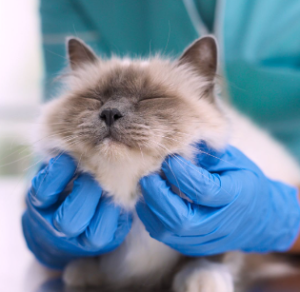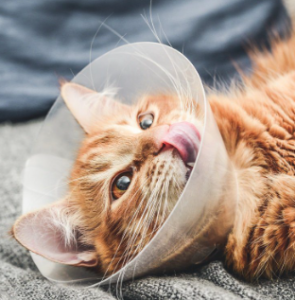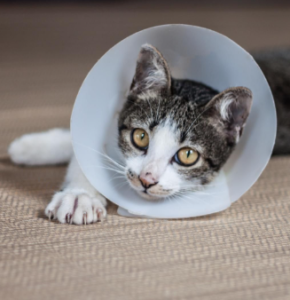When it comes to our feline friends, one of the most responsible decisions a pet owner can make is to have them spayed or neutered. But when is the purr-fect time for this procedure? Well, you might be surprised to know that kittens can be fixed much earlier than you’d expect, ensuring they don’t contribute to the explosion of the cat population.
Typically, veterinarians recommend that kittens be spayed or neutered between the ages of four to six months. However, some experts advocate for early-age spay/neuter, which can be as young as eight to twelve weeks, especially in a shelter environment to prevent accidental litters before adoption. The key is ensuring the kitten weighs at least two pounds before undergoing the procedure. Why so young, you ask? Well, fixing kittens at this tender age can lead to quicker recovery times and less surgical complications. Plus, it nips any chance of marking, yowling, and the urge to roam right in the bud—now that’s what I call a win-win!
Understanding Spaying and Neutering

Firstly, these surgeries can prevent unwanted litters, contributing to the reduction of stray and homeless cats. They also ward off certain health issues, such as uterine infections and breast tumors in females, and testicular cancer in males. Moreover, fixed kittens often exhibit fewer behavioral issues, such as spraying, roaming, and aggression. By choosing to spay or neuter your kitten, you’re not only taking a step towards responsible pet ownership, but you’re also investing in their long-term well-being, ensuring that your kitten leads a happier and healthier life.
Best Age for Fixing Kittens

Well, it’s all about hitting the mark before kittens reach sexual maturity, to avoid unwanted litters and the onset of marking behaviors. Not to mention, fixing kittens at this age can help prevent certain health issues later on. Did you know that spaying a female kitten before her first heat cycle significantly reduces her risk of developing mammary cancer? And neutering males early can prevent testicular cancer and reduce aggression. It’s like hitting two birds with one stone – preventing health issues and contributing to the control of the pet population!
Still, it’s important to consult with your vet, as some may recommend spaying or neutering as early as eight weeks old, especially in shelter environments to ensure the procedure is done before adoption. Here’s a quick rundown:
- 8 weeks: Early age for shelters and certain situations.
- 4-6 months: Standard recommended age range.
- After 6 months: Still possible but comes with increased risks.
Remember, while it’s crucial to get your kitten fixed, it’s equally important to ensure they’re in good health before the surgery. A little chat with your vet can go a long way in making an informed decision for your feline friend’s long-term well-being. So, ready to take the leap? Your kitten will thank you for it – in cuddles and purrs!
Pre-Surgery Considerations

Another vital consideration is fasting. Your vet will likely advise that your kitten fasts for a specific period before the surgery. This is to prevent any complications that can arise from anesthesia, such as vomiting or aspiration. Here’s a quick checklist to help you prepare:
- Consult with your vet for a pre-surgery check-up.
- Confirm the fasting time – usually the night before surgery.
- Prepare a comfortable recovery area at home.
- Plan for post-surgery care, including pain management and follow-up visits.
By paying attention to these , you’re setting the stage for a safe and successful procedure. Your little companion will thank you for it with purrs and cuddles!
Post-Surgery Care for Kittens
After your little furball has been spayed or neutered, it’s crucial to provide the right care to ensure a safe and speedy recovery. The first 24 hours are particularly important, as your kitten will be groggy and possibly disoriented from the anesthesia. A cozy, quiet space away from other pets and activity will help them feel secure as they regain their bearings.
Here are some key post-surgery care tips to follow:
- Keep the incision dry: Avoid baths and limit your kitten’s activity to prevent the incision site from getting wet, which could lead to infection.
- Monitor the surgery site: Check daily for signs of redness, swelling, or discharge. Any of these could indicate an infection and should prompt a call to your vet.
- Manage pain: Your vet will likely prescribe pain medication. Follow the dosage instructions carefully to keep your kitten comfortable.
- Prevent licking or scratching: A protective collar or suit may be necessary to stop your kitten from interfering with the healing process.
- Limit playtime: Keep activity levels low for up to two weeks to prevent the incision from reopening.
- Follow up with your vet: Schedule a post-operative check-up to ensure everything is healing as it should.
Remember, the care you provide after surgery plays a pivotal role in your kitten’s health. With your attention and love, your kitten will be back to their playful self in no time!
